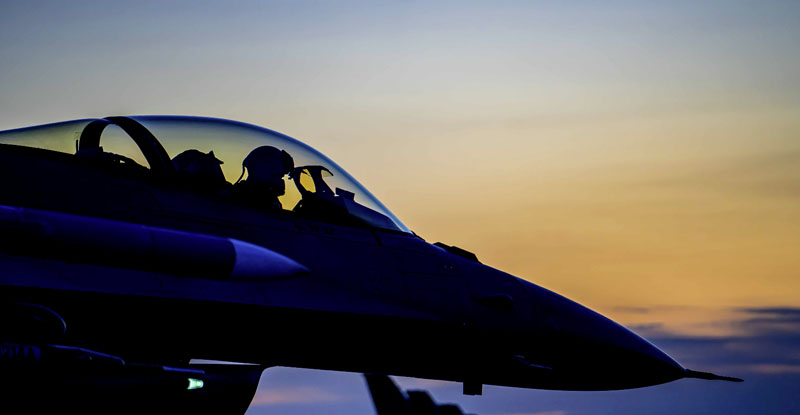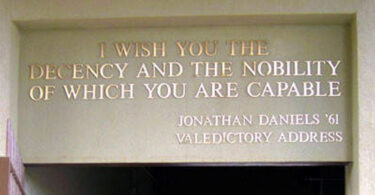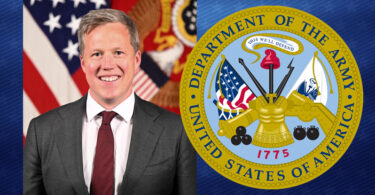By Forrest Marion, PhD, retired USAF officer and military historian
As 1919 began, the victors of World War I gathered in Paris to settle two profoundly important matters: the peace treaty with a defeated Germany and the lesser enemy powers and the beginning of the League of Nations.
In Paris, 1919: Six Months That Changed the World, Margaret MacMillan wrote of President Woodrow Wilson’s commitment to “self-determination.” It was Wilson’s overarching concept that governed his vision for the postwar world order. In her award-winning history, MacMillan wrote:
“The more Wilson’s concept of self-determination is examined, the more difficulties appear. [U.S. Secretary of State Robert] Lansing asked himself:
“When the President talks of ‘self-determination’ what unit has he in mind? Does he mean a race, a territorial area, or a community?”
It was a calamity, Lansing thought, that Wilson had ever hit on the phrase.
“It will raise hopes which can never be realized. It will, I fear, cost thousands of lives. In the end it is bound to be discredited, to be called the dream of an idealist who failed to realize the danger until it was too late to check those who attempt to put the principle into force.”
As the commissioners attempted, among other duties, to redraw the borders of a Europe that appeared near to collapsing, problems with Wilson’s phrase cropped up. “Self-determination” seemed to mean something different to almost everyone.
Today, our magic word is “diversity.” In a military service context, and depending on time, place, and source, there appear to be at least three basic meanings for diversity:
1. A reference to policies, programs, or practices intended to increase the percentages of certain categories of persons in the service, or its particular elements, deemed desirable by officials (e.g., U.S. Air Force pilots). This meaning is problematic because, to some degree, the “category” objective detracts from the priority of merit/qualification.
2. As shorthand reference for the entire diversity, equity, and inclusion enterprise. This meaning is more damaging to combat readiness because it implicitly includes “equity” programs, which, at times, have been defined as “sameness of outcome,” thus threatening both equal opportunity and military readiness.
3. As reference to the fact that having individuals from varied backgrounds and skills, such as native speakers of languages required for military activities, is highly desirable (e.g., after 9/11, military linguist programs to facilitate operations in Central/Southwest Asia).
Among the unhelpful aspects of the magical mantra of diversity is that it encourages fraudulent behavior for personal advancement.
Perhaps best known is the case of “Fauxcahontas.” Years after claiming Native American ancestry to advance her academic career at Harvard, Sen. Elizabeth Warren (D-MA) was forced to apologize to the Cherokee Nation with whom she had falsely identified herself.
Tempted by diversity’s allurements, how many others of lesser stature than Warren have successfully “gamed the system,” or lied, is unknown.
In 2021, when the U.S. Air Force announced it had too many white pilots, for example, did that not tempt a few would-be pilots to work harder to lay claim to a preferred category than to acquire the knowledge and skills required of a pilot?
Far more damaging, however, the Air Force’s announcement led to various administrative and other measures, which, from a traditional combat readiness mindset, were wrong-headed, wasteful, and unhelpful to the sine qua non of any military service.

Walter E. Williams
Shortly before his death in 2020, prodigious scholar and mentor Walter E. Williams, still teaching at age 84, wrote:
“There are relatively few black fighter jet pilots. There are stringent physical, character and mental requirements, which many black applicants could meet. But fighter pilots must also have a strong knowledge of air navigation, aircraft operating procedures, flight theory, fluid mechanics, meteorology and engineering. The college majors that help prepare undergraduates for a career as a fighter pilot include mathematics, physical science and engineering. But if one graduates from high school without elementary training in math, it is not likely that he will enroll in the college courses that would qualify him for fighter pilot training.”
Williams observed that the “conspicuous absence of black Americans” in certain fields had nothing to do with racism, but, rather, “with academic preparation.”
In another case, Williams added that some 35% of Nobel prizes in science that are awarded to Americans go to Jewish Americans, which make up only 3% of the U.S. population.
“Again, it is excellence that explains the disproportionality, not diversity and inclusion,” he concluded.
In a word, Williams described meritocracy, a values system that has defined our armed forces for generations to the benefit of us all.
Our military is objectively more capable and lethal when it is focused on the skills and qualities of its soldiers, not their skin color or gender.
The “diversity is our strength” mantra of the Left is, simply put, meaningless at best or stupid at worst. Some neo-Marxists or DEI-touting ideologues may claim otherwise and even call meritocracy racist, but they are liars.
Forrest L. Marion, Ph.D., is a retired military officer and government historian, and the author of four military histories including the forthcoming book, Standing Up Space Force: The Road to the Nation’s Sixth Armed Service (Naval Institute Press).








Leave a Comment